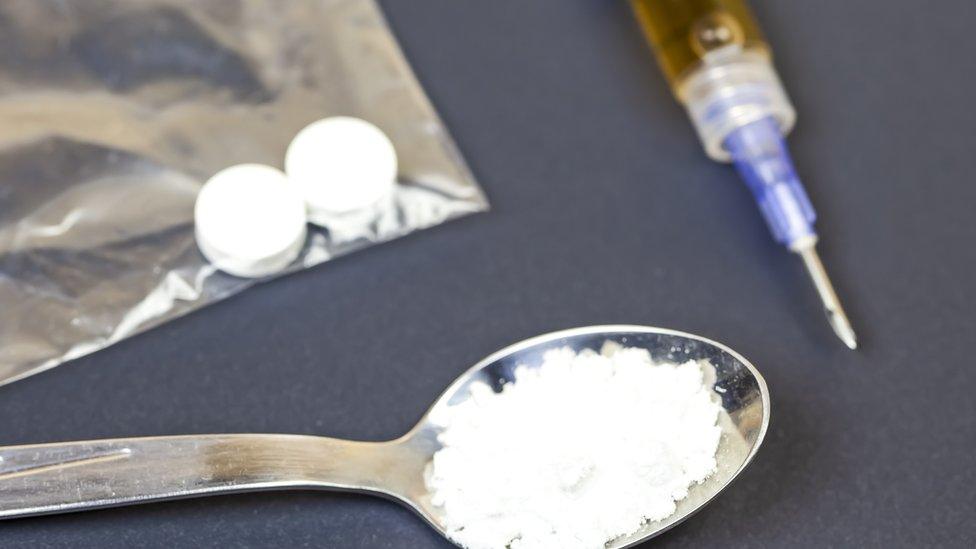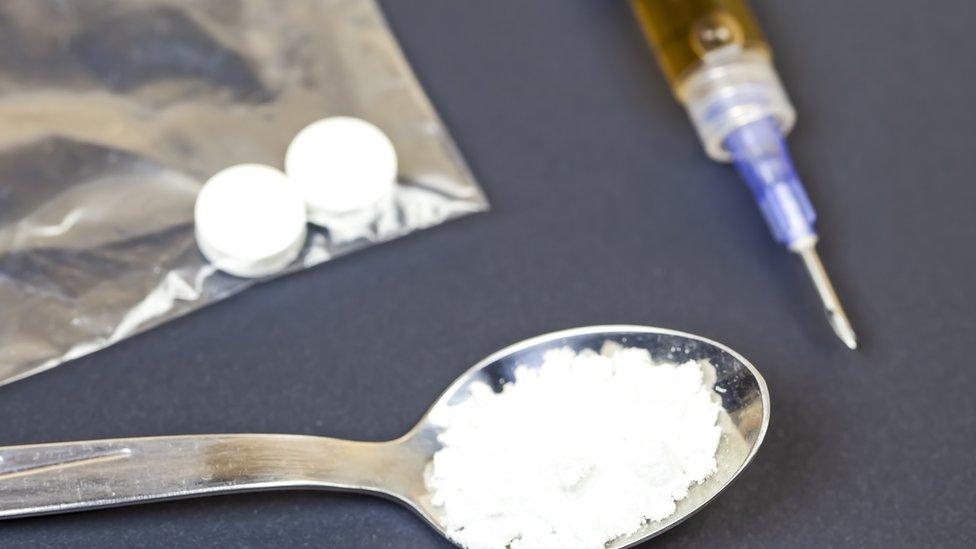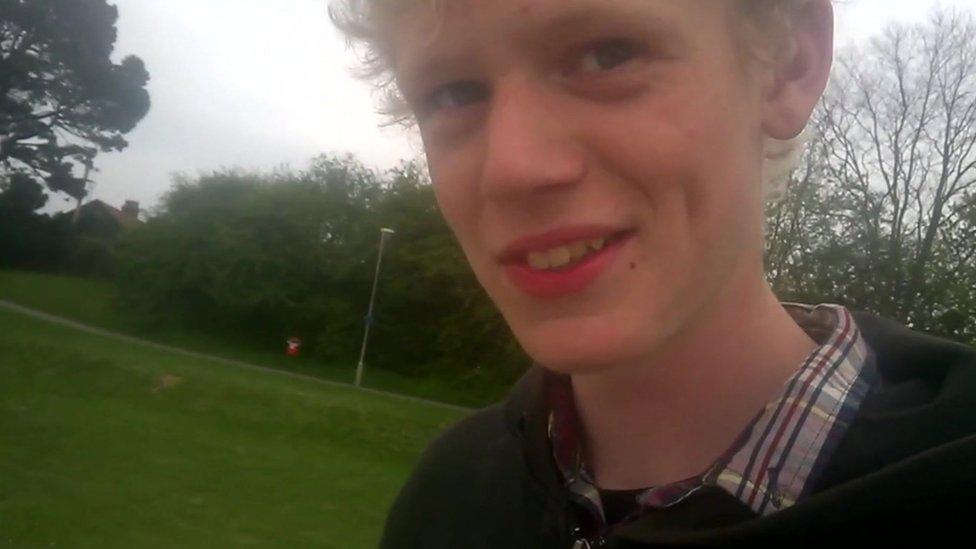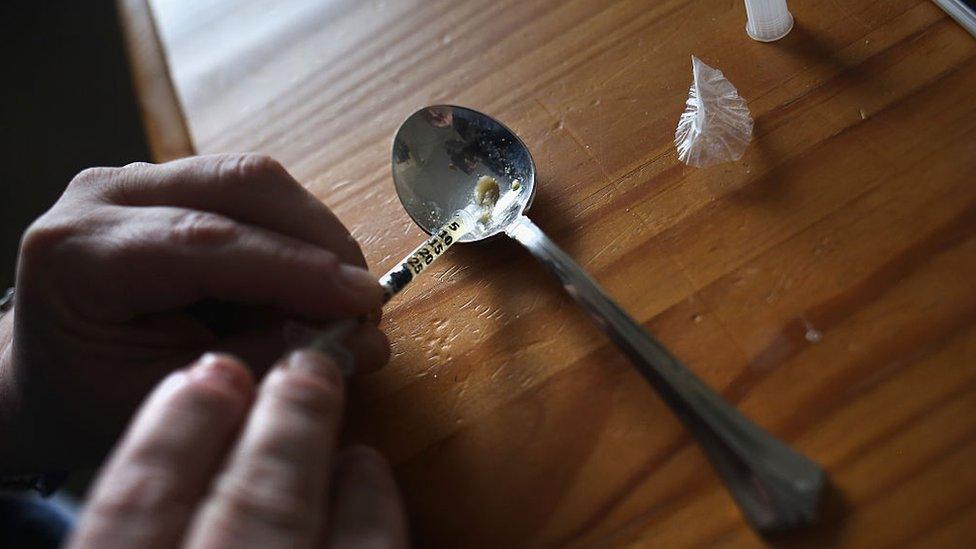Synthetic opioids: Largest ever UK seizure made by police
- Published

Nitazenes can be injected, inhaled or swallowed
The largest ever UK seizure of synthetic opioids has been made by police and border officials.
A series of raids in Waltham Forest and Enfield, north London, culminated in 11 people being charged with conspiracy to supply class A and B drugs.
About 150,000 tablets of a drug called Nitazene were found in a factory set up to make the pills, Metropolitan Police said.
Detectives believe the drug was being sold on the dark web.
They also found various other class A and B drugs, a gun, a pill pressing machine, more than £60,000 in cash and £8,000 in cryptocurrency stored on hard drives.
Arrests were made between August and November and all those arrested have since been charged.

What are Nitazenes?
Nitazenes were first developed in the 1950s as a pain-killing medication but are so potent and addictive they have never been approved for medical or therapeutic use.
In recent years, they have been linked to thousands of deaths in the United States.
In 2019, it was reported that, unknown to users, they were being cut and spliced into heroin, cocaine, and street pills.
Injected, inhaled or swallowed, mixing them with other drugs and alcohol is extremely dangerous and significantly increases the risk of overdose and death.

British law enforcement is aiming to stop any rise in the use of synthetic opioids amid a decrease in heroin being smuggled from Afghanistan, a Met force spokesperson said.
They want to avoid a situation similar to that in the US, where the number of fatal fentanyl overdoses went up by three times in the five years to 2021.
Det Supt Helen Rance said: "Synthetic opioids have been detected in batches of heroin found in London and across the UK; they substantially raise the risk of incredibly serious harm to the user and are believed to be linked to a number of deaths.
"We are working closely with partners to monitor and proactively tackle this issue, provide advice and remove the availability of these dangerous drugs from our streets."
Dr Caroline Copeland, director of the National Programme on Substance Abuse Deaths, said: "I think people are buying what they believe to be heroin and it's been adulterated by these stronger compounds.
"Because they are so much stronger the people that are using them have no idea how much to use, and what they thought was previously a safe dose is now a very unsafe dose."

Synthetic opioids
Signs that someone may have taken one of these drugs:
small, narrowed pupils
reduced or loss of consciousness
dizziness or drowsiness
difficulty breathing
nausea or vomiting
cold or clammy skim
blue or grey lips and fingernails
low blood pressure or decreased heart rate.
Anyone who has consumed synthetic opioids and experiences the symptoms described should seek urgent medical treatment, the Met said.

Listen to the best of BBC Radio London on Sounds and follow BBC London on Facebook, external, X, external and Instagram, external. Send your story ideas to hello.bbclondon@bbc.co.uk, external
- Published8 October 2023

- Published5 February 2018

- Published4 January 2020
